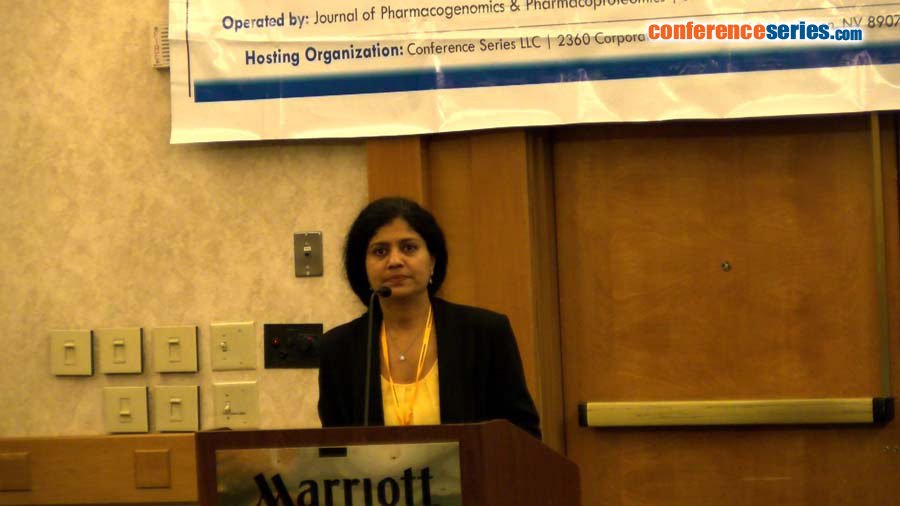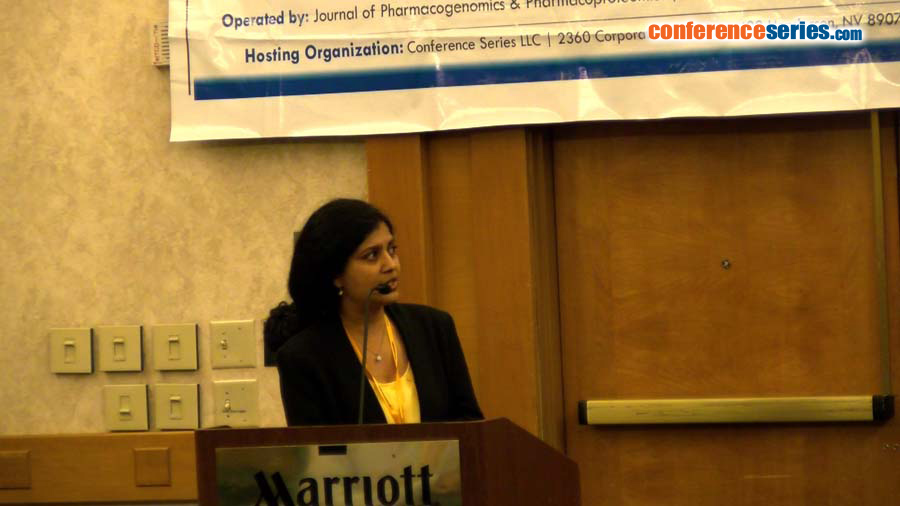
Gargi Basu
Ashion Analytics, USA
Title: Molecular profiling reveals actionable targets in breast cancer patients
Biography
Biography: Gargi Basu
Abstract
Breast cancer (BC) is the second largest disease affecting women and is a leading causing of death among women. It is a molecularly diverse disease defined by ER, PR, HER2 status. Characterizing the molecular alterations in BC may lead to an improved understanding of its biology and provide new therapeutic options. Comprehensive genomic profiling was performed on 82 breast cancer samples with 48 metastatic and 34 primary samples. Targeted sequencing was performed on 562 cancer associated genes in paired tumor and blood DNA samples.Within the breast cohort studied, there were 29 (35%) triple negative (TNBC), 8 (10%) were HER2 positive and 44(54%) were hormone receptor positive (HR+). Within the TNBC subset, 13 cases had loss of function alteration in PTEN, STK11, TSC2 and NF1, or gain of function event in RPTOR, AKT1 or PIK3CA mutation in exon 9 or 20 suggesting potential response with PI3K/AKT/mTOR inhibitors. Further, mutations in TP53 was present in 23 cases which may indicate potential response to Wee1 inhibitors. Dysregulation of cell cycle pathway through activation of cyclin D1 or inactivation of CDKN2A was found in 2 cases. DNA repair deficiency was found in 3 cases harboring deleterious mutations in CHEK1, BRCA1 and PALB2. Other actionable alterations included FGFR1 gain in 2 cases and JAK2 gain in 1 case. Among the HER2 positive subtype, 5 cases harbored mutations in PTEN or mutations in exon 9 or 20 of PIK3CA suggesting potential response to PI3K/AKT/mTOR inhibitors. In addition, 5 cases had TP53 mutations mainly within the DNA-binding domain which is known to truncate the p53. Other actionable events included amplifications in FGFR1, RARA and CCNE1. In HR+ subset, 25/44(57%) had activation of PI3K/AKT/mTOR pathway with mutation in exon 9 or 20 of PIK3CA, or alterations in PTEN, FBXW7, STK11, NF1, NF2, ARID1A, PIK3R1, TSC1/2, AKT1, AKT2 and MTOR. Interestingly, 3 samples harbored activating HER2 mutations which could be targeted by HER2 targeted therapies. In addition, we observed constitutively active ESR1 mutations in HR+ breast cancer in 6/44(14%) cases. Alterations in cell cycle genes was present in 10(23%) cases which may benefit from CDK4/6 inhibitors. DNA repair deficiency was noted in 8 cases with mutations in ATM, BRCA1, BRCA2, FANCA, RAD51, PALB2 genes. Other actionable alterations included 13 cases with TP53 mutations and 5 cases with alterations in FGFR genes causing activation of FGFR pathway.This study provides a broader understanding of genomic landscape and molecular targets in BC that are not routinely searched for in the current management of BC. When considering clinical trials or treatment planning for advanced BC patients, exploratory genomic analysis should be considered.





